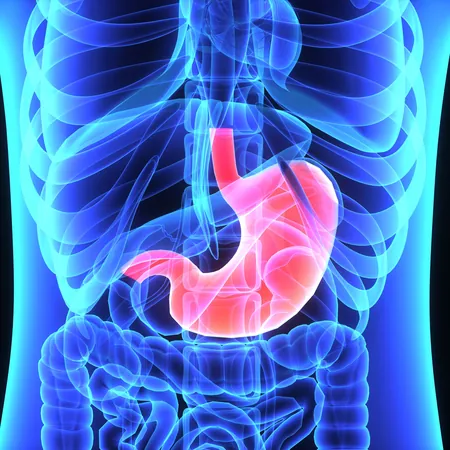
Breakthrough in Gastric Cancer Treatment: Chemoradiation Outshines Chemotherapy!
2025-08-30
Author: John Tan
Unlocking New Hope for High-Risk Gastric Cancer Patients
A stunning new study has unveiled that adjuvant chemoradiation could significantly enhance survival rates in patients battling high-risk locally advanced gastric cancer post-D2 resection, outperforming chemotherapy alone. This groundbreaking phase 3 trial (NCT02648841) published in the revered International Journal of Radiation Oncology, Biology, and Physics is set to transform treatment protocols.
Trial Insights: Survival Rates Examined
After an extensive follow-up period averaging 47.1 months, researchers observed that 25.2% of patients undergoing chemoradiation faced disease recurrence or death, compared to 34.4% in the chemotherapy-only group. The findings showcased a promising edge for chemoradiation, with 3-year disease-free survival (DFS) rates at 70.7% versus 66.7% and 5-year rates at 69.4% versus 63.8%. However, when it came to overall survival (OS) and other metrics, the differences weren’t as pronounced.
A Closer Look at High-Risk Patients
The trial identified a subset of high-risk individuals—those with advanced N2 disease and extraperigastric lymph node involvement—where chemoradiation significantly impacted outcomes. The 3-year DFS rates soared to 71.0% for the chemoradiation group compared to a mere 53.0% for chemotherapy alone. This subgroup also demonstrated notable improvements in local recurrence-free survival (LRFS) and distant metastasis-free survival (DMFS), highlighting the urgency for personalized treatment strategies.
Expert Commentary: Shaping Future Treatments
Dr. Xia-Xi Qiao of the Department of Radiation Oncology shared essential insights: "Our findings indicate that while chemoradiation may not deliver broad survival benefits for all patients post-D2 gastrectomy, it offers a significant advantage for those categorized as high-risk. This opens avenues for identifying specific patient populations who can truly benefit from intensified radiation therapy, paving the way for more personalized medical interventions.”
The Trial’s Comprehensive Approach
This in-depth trial encompassed 315 patients with advanced disease, randomly assigning them to either chemotherapy or chemoradiation groups. Participants underwent 8 cycles of a combination of S-1 and oxaliplatin, alongside an additional 4 to 6 cycles of chemotherapy in the chemoradiation group, integrated with intensity-modulated radiation therapy.
Navigating Treatment Side Effects
Both treatment regimens experienced a spectrum of acute toxicities, with 69.5% of chemoradiation patients facing complications compared to 65.6% in the chemotherapy group. Despite the higher incidence of severe events, no significant distinctions emerged between the two treatments, suggesting a relatively tolerable approach across the board.
The Future Looks Bright
As researchers delve deeper into the intricacies of gastric cancer treatment, these findings could redefine standards of care and inspire a shift towards tailored therapies. With further studies on the horizon, the medical community remains optimistic about extending and improving the lives of patients grappling with this aggressive form of cancer.


 Brasil (PT)
Brasil (PT)
 Canada (EN)
Canada (EN)
 Chile (ES)
Chile (ES)
 Česko (CS)
Česko (CS)
 대한민국 (KO)
대한민국 (KO)
 España (ES)
España (ES)
 France (FR)
France (FR)
 Hong Kong (EN)
Hong Kong (EN)
 Italia (IT)
Italia (IT)
 日本 (JA)
日本 (JA)
 Magyarország (HU)
Magyarország (HU)
 Norge (NO)
Norge (NO)
 Polska (PL)
Polska (PL)
 Schweiz (DE)
Schweiz (DE)
 Singapore (EN)
Singapore (EN)
 Sverige (SV)
Sverige (SV)
 Suomi (FI)
Suomi (FI)
 Türkiye (TR)
Türkiye (TR)
 الإمارات العربية المتحدة (AR)
الإمارات العربية المتحدة (AR)